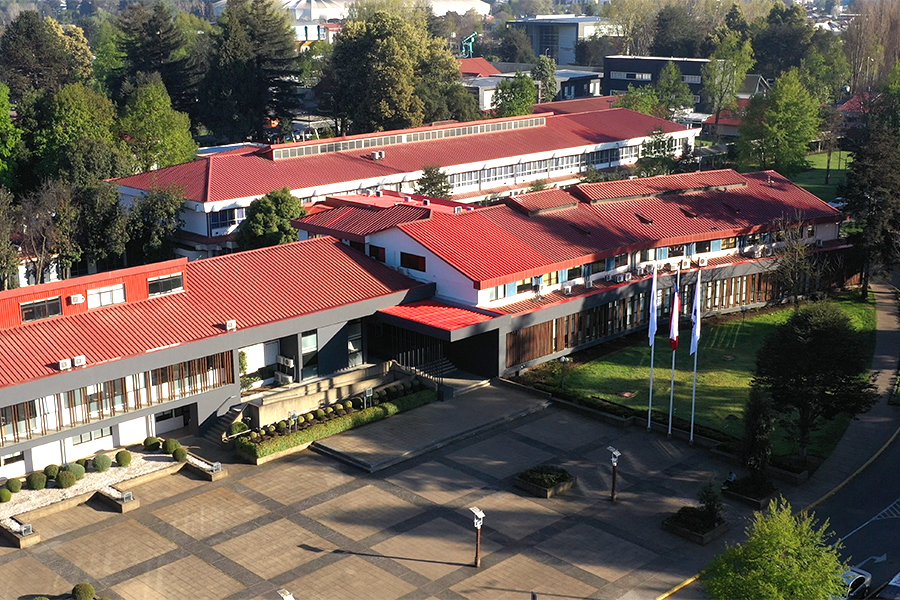|
The elaboration of the Strategic Development Plan 2030 is a collaborative, participative, open and convening process that concludes with a route map that will guide the present and future steps of the university. |
The Universidad de La Frontera (UFRO) is facing new challenges of transformation in higher education, in accordance with the requirements of the country and the international context. Therefore, the university has put a special focus on the elaboration of its Strategic Development Plan 2030 (PED 2030). It is an opportunity to face the challenges of the present and the future, by defining the strategic guidelines, prioritizations and focus areas regarding the work of the university, to maintain a sustained development over time, including all entities and management levels. To know and understand the main guidelines and methodologies of a process of updating and change is essential for a university community that grows and develops through numerous initiatives that seek to strengthen the institutional organization and functioning, as well as the suitability, competence, outreach and representativeness of the entire university. According to the director of the Institutional Analysis and Development Office (DADI), Fabiola Ramos, the updating process of the PED 2030 started in 2019 with the implementation of the guidelines for institutional management, in accordance with the laws 21.091 on Higher Education and 21.094 on State Universities. “Both laws allowed us to update our statutes and our institutional mission, taking into account the current requirements and challenges. They offered a great opportunity to relate us in a new way with the state university system and ways of financing.” In this context, “we started to do a participative, open, and three-tier institutional diagnosis, which currently is in the phase of consultation, using instruments such as interviews, focus groups (with internal and external actors), in addition to a survey adjusted to the different levels, with the aim of updating and validating this diagnosis that had to be adapted to the new environment”. The efforts to develop corresponding university policies, for example in the fields of people management, gender, sustainability, digital transformation and internationalization strategies, have become important elements in the process. STAGES AND METHODOLOGY At this stage, the PED 2030 allows assessing the challenges defined in the institutional mission and the new criteria of the Chilean Accreditation Commission (CNA) for institutional accreditation, including the areas that are part of the work of a regional public and state university. But also the needs of the territory and the multiple stakeholders are considered, as well as the challenges of a complex university such as UFRO over the following 10 years. “The stages after the elaboration of the PED 2030 are the formulation of guidelines, objectives, indicators, goals and a new balanced scoreboard for the period 2023-2025. Of course, these actions do not only allow, but require the public and three-tier participation and validation,” the director of DADI explains. TRANSVERSAL APPROACHES As a seal of the work with these characteristics, the transversal approaches proposed are those stated in the institutional mission: human development and sustainability, interculturality, gender equity, inclusion, citizenship, ethics, democracy, internationalization and territorial relevance. These approaches are complemented by the new criteria of accreditation established by CNA: institutional management and strategic planning, educational model (training), research, innovation and creation, outreach and quality assurance. This comprehensive analysis and focus allows us to operate effectively with the diverse management resources we have as a university: policies, strengthening plans, the CNA regulations, policies, and so on. From the beginning, the PED 2030 involved a collaborative nature, through established bodies in the university and different channels to participate and access the information. One example is the open consultation among the university community, which plays an important role in the elaboration of an instrument that considers the university identity, gathering the interests and expectations of each of the university community members, taking into account the common mission and the territory with its particularities and challenges. Written by: UFRO Communications Office
|





